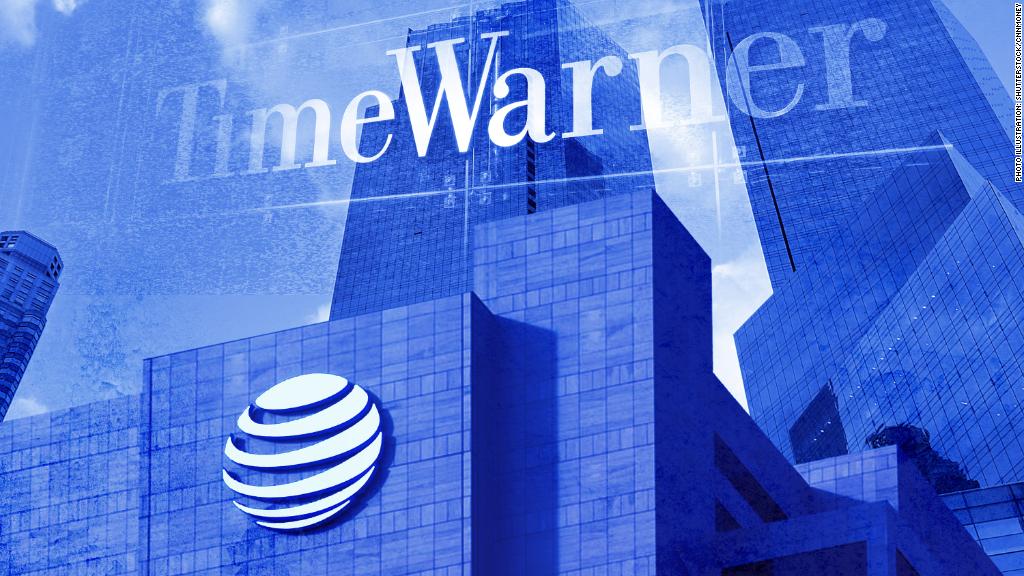
So AT&T will be allowed to buy Time Warner. What does that mean for you?
In the short term, very little. In the long term, potentially a lot.
AT&T delivers media content, most of which it doesn't own, to hundreds of millions of customers — through phones, satellite and cable. Time Warner makes TV shows, movies and online video that millions watch on screens large and small.
A federal judge approved their merger on Tuesday, dismissing Justice Department antitrust concerns. The government could still appeal.
Joining AT&T and Time Warner creates a behemoth that can stand up to Comcast (CCZ), Netflix (NFLX), Amazon (AMZN), Facebook (FB) and other media titans. Netflix in particular redefined distribution and then built a content juggernaut to match.
Related: Judge approves $85 billion AT&T-Time Warner deal
The deal brings together AT&T Wireless, DirecTV, U-Verse, HBO, Warner Bros. and the Turner networks, including CNN. It gives the new AT&T control of both the pipes and some of the media content that flows through them.
Will prices go up?
The government's lead witness during the trial estimated AT&T could charge cable customers $571 million more by 2021 for TNT, TBS, CNN and its other cable networks. That sounds like a lot, but it works out to just 45 cents per month per subscriber.
During the trial, AT&T poked a bunch of holes in the government's already puny forecast. And Judge Richard Leon, who approved the merger, found that the deal would not significantly affect the price of programming.
AT&T has also pledged not to black out its programming on rival platforms for seven years, abandoning a bargaining chip that content companies use to negotiate retransmission fees. Those fees are going up, which is one reason cable bills are rising.
How your viewing habits will change
The deal is all about battling companies like Facebook and Netflix, which has grown to 130 million global subscribers and is now worth more than any traditional media company.
AT&T is in a unique position to leverage Time Warner's programming: Like Netflix, AT&T Wireless and DirecTV can reach just about every household in the United States.
AT&T wants to make sure viewers see its media content on as many platforms as possible, including rival cable and wireless companies. It doesn't make business sense for AT&T to withhold that content from competitors.
But AT&T could use its reach to offer sweeter deals to its own customers. Imagine a pitch: Get HBO, 4 GB of wireless data, DirecTV Now and Digital Life home security for just $249 a month!
Those kinds of deals could persuade would-be cord cutters to pay AT&T for its content the way Netflix has gotten more than 100 million to subscribe to its platform.
Your data
The new AT&T will know a lot more about you than Time Warner ever could. It can better target ads based on what you watch on TV and look at online.
Traditional media's ad sales teams have been stuck in the Stone Age to a large degree, relying on Nielsen ratings, audience testing, rudimentary analytics and a lot of guesswork to tailor advertisements their audiences.
Meanwhile, Google and Facebook have swallowed up 75% of the online ad market by collecting and selling mountains of information about the people who use their platforms.
AT&T has a gigantic data analytics business, including a marketing service for corporate customers. It also has about 100 million wireless subscribers who use their phones for everything.
It's not hard to imagine a future in which AT&T knows you like watching basketball on TNT, read Bleacher Report, and bought tickets to "Space Jam 2" — and notices you're near a Dick's Sporting Goods. So it sends your phone a sponsored notification for a coupon.


